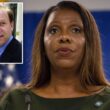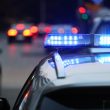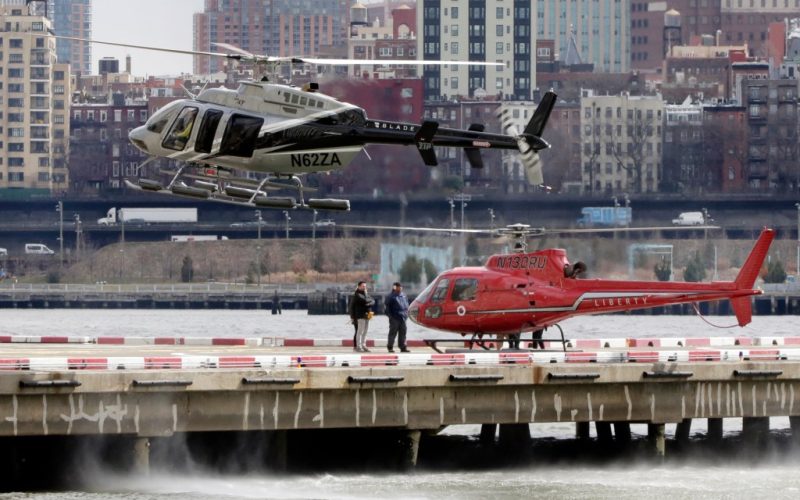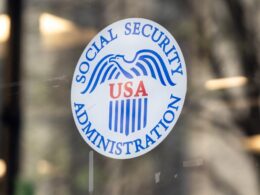The New York City Council passed a bill Thursday that could cut down helicopter use in the city by putting harsher noise restrictions on nonessential flights.
The bill, which passed by a 46-1 vote with one abstention, blocks helicopters that don’t meet the most stringent Federal Aviation Administration noise standards from flying out of the main Manhattan heliports in Midtown and near Wall St., beginning in 2029.
This comes after the tourist helicopter crash in the Hudson earlier this month that killed a family of five and their pilot.
“While no legislation can eliminate all risk, transitioning to quieter, lower-emission aircraft will help reduce the dangers posed by the noisiest, most outdated helicopters,” Amanda Farias, the bill’s sponsor, said at a press conference ahead of the Council vote.
That bill is accompanied by separate resolutions to call on state lawmakers to establish a noise tax and prohibit certain flight operations, and to call on the FAA to ban all nonessential helicopter travel.

The bill’s extended timeline is to allow for time for the industry to adapt and for the city to update its contracts with heliport operators, Farias said. About 9% of aircraft flying out of two of the Manhattan heliports — at E. 34th St. and in the Financial District — are not currently in compliance with the bill’s noise regulations.
Autumn Cabaniss, a board member of the Eastern Region Helicopter Council, a regional consortium of pilots, said in a statement Thursday that the bill amounted to overregulation.
“Rather than regulating the industry out of existence, we should be working together to create a framework that ensures safe, quiet and sustainable operations,” she said. “The helicopter community stands ready to work with the City Council to pass common-sense regulations that works for everyone, keeps the economy strong and ensures New York remains the world’s safest and preeminent destination.”
After the tragic April 10 copter crash, some city lawmakers renewed calls for an outright ban on nonessential helicopter flights. Mayor Adams has said he opposes such a move, emphasizing that the tourism and business sectors would be impacted by such a ban.
Spokespeople for the mayor did not immediately respond to a question of whether he plans on signing the bill into law, but Farias said that she worked with the administration to craft the bill.
The Adams administration has been a booster for converting to electric helicopters, making the nascent — and ostensibly quiet — technology a key part of its rebranding of the Wall St. heliport.
With the Lower Manhattan heliport now redubbed the “Downtown Skyport,” a joint venture made up of French and British aviation companies has been tasked with preparing the facility to operate electric helicopters in anticipation of FAA approval of the technology.
During the past five years, 311 complaints for helicopter noise have skyrocketed by 2,329%, city data shows. The excessive noise can inflict a slate of detrimental health impacts, including insomnia, high blood pressure, impaired cognitive function and long-term memory loss.








